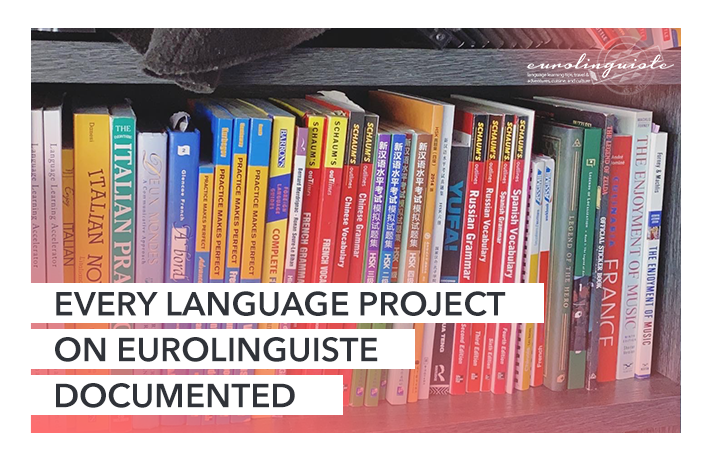The Linguistic Journey of La Marinière

My name is Shannon Kennedy and I'm the language lover,…

It is with great pleasure that I introduce you to guest blogger, La Marinière. La Marinière is an American translator fluent in French and English living in France with her husband and son. She very kindly agreed to write a guest post on learning a second language and I am very happy to share her story.
As a fellow linguist, I always enjoy hearing how others have learned other languages and how they experience them in their day-to-day lives. Here, she will be discussing her linguistic journey and how language plays a role in her life today.
—
My journey with French actually began with Spanish. Starting in seventh grade, my school offered French, Spanish, and Latin. I wanted to take French, but there was a conflict with my schedule, so I opted for Spanish.
I had a rough time with Spanish. Maybe it was because I wasn’t totally interested in the language and maybe it was because the teacher wasn’t that great. In either case, I took Spanish for three years, but never really took an interest in the language.
However, when I got to tenth grade, I had the option of taking a second language, so I switched to French. The teacher, Mrs. Stephens, was a dear sweet lady about 10 years away from retirement. And while her spoken French was heavily accented and not terribly fluent, she had a passion for the French language and culture that really inspired me. I picked up French with surprising ease and I credit this both to having a basic background in Spanish and a strong desire to learn French.

When I started college, I had to take a placement exam to see what my level was. I remember having an interview with a professor who asked me what my language goals were. I told her in my very shaky French that I wanted to become fluent. I was placed in a 3rd level French class and feel like I learned more French in one semester of college than I did in three years of high school. I ended up minoring in French.
While still in high school, as soon as I heard the words “study abroad”, I knew I was going to Paris when I was in college. I spent a year in Paris when I was a junior. This was definitely a turning point for my French.
In the first few months, anytime I would open my mouth to speak to shop keepers or waiters or ask for directions, the reply would always be in English. But after about four months, people started to respond to me in French. Around the same time, I also mastered the pronunciation of the “r” like in être or Louvre. Another hard one is “ou” like in courrier, but that came near the end of my year in Paris.
The other thing that helped my French was a boyfriend. He wasn’t a French boyfriend, but French was our common language. Even though we both made mistakes, speaking French outside of classes really eased some of my fear of making errors in front of native speakers. Immersion is definitely the best way to learn a foreign language.
After I finished college, I was able to return to France for a few years for more studies, work as a nanny, and a different boyfriend, this time a native speaker. As time went on, I moved back to the US for five years where I worked for Swiss and French companies, which allowed me to continue using my French. I also took translation classes and I now work as a translator.
These days, I am back in France with my French husband and our franco-american son. Living in France now, I often receive compliments when people realize I am American after having a conversation with them in French.
This speaks well of my accent and fluency, but it can also work against me. I still make mistakes. Every day. All of the time. I don’t want to toot my own horn, but I have been told that I have practically no accent in French. So when I make a mistake, for example for gender agreement like when using la or le, or try to use a complicated sentence structure, or tripping up on the pronunciation of a new word when everything else is correct, I get some strange looks and leave people very confused. I once asked a woman for directions to le mairie (the city hall) with my nice accent and the lady had no idea what I was talking about since I should have asked for la mairie.
At this stage, I would consider myself to be more than fluent but less than bilingual since I was born monolingual. To me, someone who is truly bilingual is someone who had equal exposure to two languages starting from birth or a very young age, and who not only speaks both languages perfectly but also understands all of the nuances and subtleties of both languages.
While I will never have “perfect” French, I continue to learn and improve because of the different paths I have taken have always led me to places where I could speak French.
My name is Shannon Kennedy and I'm the language lover, traveler, and foodie behind Eurolinguiste. I'm also the Head Coach of the Fluent in 3 Months Bootcamp, co-founder of Women in Language, and former Resident Polyglot at Drops.



